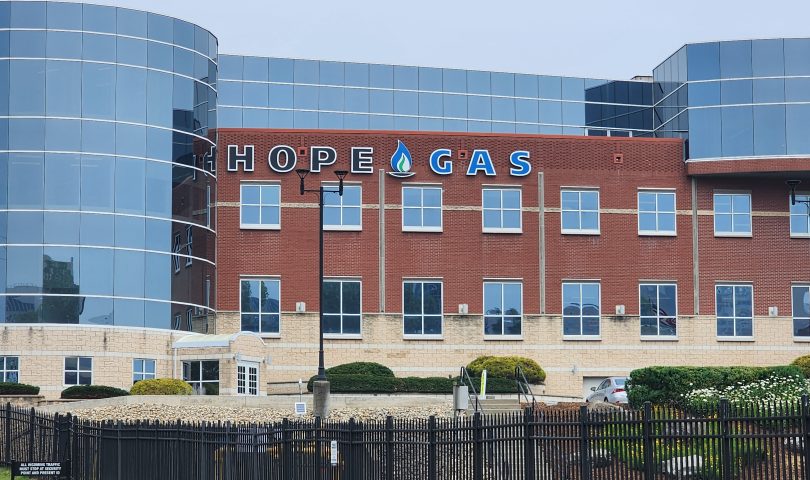MORGANTOWN – Hope Gas in a Thursday filing with the Public Service Commission explained why it doesn’t want to disclose the projected costs and revenues associated with its Morgantown pipeline project.
It boils down to potentially lower revenues and potentially higher costs for the company and its customers, Hope said in its motion for a protective order concerning the dollar figures, along with maps and drawings of the pipeline route.
Hope Gas filed with the PSC on Sept. 22 for its OK to build a new 30-mile pipeline from Wadestown in western Monongalia County eastward to the edge of Morgantown and then northwest to a site near Osage.
Hope said it proposed the project to meet increased demand in the Morgantown area. “The Project is needed for Hope to maintain reliable natural gas service to its existing customers in the Morgantown area, and is not being undertaken to specifically serve a new customer or new customer project.”
All the dollar figures in the public copy of the Sept. 22 filing are redacted and referred to as confidential. But Hope said it is not seeking to change any rates or impose any surcharges. It would recover costs in future base-rate and purchased gas adjustment proceedings.
In Thursday’s filing, Hope seeks to keep information confidential in three areas, and cites various precedents for the request, “in accordance with the laws of the state of West Virginia and the commission’s procedures.”
First, one of the project application’s exhibits contains certain highly detailed maps and drawings “that provide precise locations of facilities that should not be disclosed for security reasons.”
Second, another exhibit contains project costs that should remain confidential because certain project work remains subject to a bidding procurement process.
And third, testimony by Craig C. Colombo, Hope’s vice president of gas supply, should be confidential where he discusses estimated revenue from certain services Hope might provide where the pricing for such services is subject to commercial negotiation with customers.
Disclosing projected costs and revenues, Hope said, “would be harmful to the extent it would prejudice and restrict the company’s ability to negotiate the best possible terms and pricing for contracting for the services required to construct the project, as well as Hope’s ability to do so for future projects, or for the services Hope might offer to producer customers.”
Hope said the projections have commercial value and disclosure would give other third parties in negotiations with Hope “an opportunity to obtain business advantage” over the company.
This could lead to higher costs and lower revenues for Hope and the provider companies it works with, it said.
Regarding the maps and drawings, Hope notes that they contain specific plans and descriptions of existing public utility plants and equipment that are protected from disclosure under the state Freedom of Information Act.
The only hint at the possible cost of the project appears in the original filing, where Hope cites state code that sets a time limit for the PSC to render a final decision for any project with a projected total cost exceeding $50 million.
Hope is seeking a PSC order by June 18, 2024. It says it must begin construction no later than Nov. 1, 2024, to fit within narrow legal windows for certain tree-clearing activities, and in order to have the new facilities come into service by Nov. 1, 2025 – the beginning of that winter’s heating season.
Additional restoration and cleanup would continue to the second quarter of 2026.
Hope projects the project to generate about 600 construction jobs, “the majority of which will be West Virginia-based labor.”
Email: dbeard@dominionpost.com




